When faith and pain lead to service
As a child of immigrants, Lynette Madrigal is now called to help other immigrants
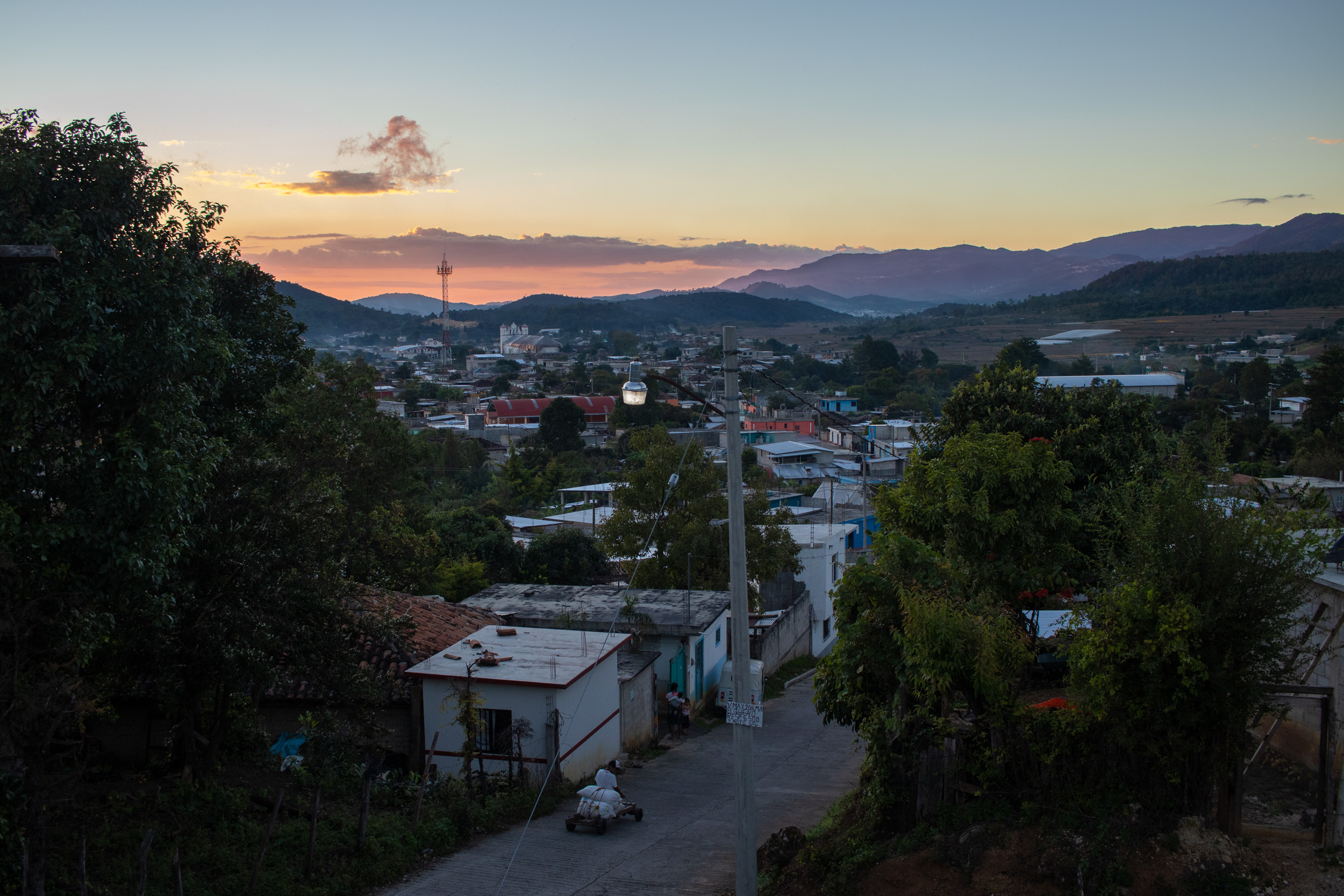
To listen to Lynette's story, visit Relief, Development and Podcast.
From a young age, Lynette Madrigal said she has always felt a sense of God’s presence. Fostered by the religious practices of her Catholic family, she learned to pray and to trust that God was always with her.
Her faith sustained her as she dealt with the uncertainties of being the child of immigrant parents in California. Like many undocumented migrants, her parents were always alert because the threat of deportation was real.
The possibility of being separated from her family was frightening, Madrigal said.
But she also has many fond memories of the tight-knit community where she grew up. Most of her friends were children of undocumented parents. They all knew each other and had fun together in the neighborhood, at the babysitter, in the olive groves and at school.
But, every time her mother didn’t come to pick her up from daycare by 5 p.m., she said was convinced her mother had been deported. “I do remember growing up having this deep anxiety, deep anxiety that I wasn’t going to see my mom again.”
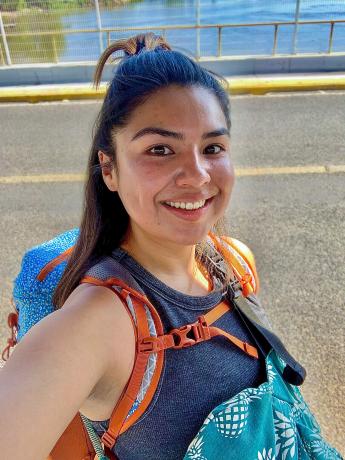
Madrigal, now 26, recently shared her story because her personal experience is the main motivator for the service she does today in Guatemala City, with Mennonite Central Committee (MCC). Through MCC’s Serving and Learning Together (SALT) program for young adults, she works with Casa del Migrante (Migrant House) staff to share her compassion and faith with Guatemalan deportees at the airport and other immigrants at a shelter.
“It is incredibly hard work. Emotionally and physically,” Madrigal said. “The hardest cases are when the families are deported. Mom is carrying 1 to 3 kids each, stunned by what's just happened to them.”
She can relate to the confusion and pain of those children. When she was 7 years old, she witnessed her parents in similar distress.
I do remember growing up having this deep anxiety, deep anxiety that I wasn’t going to see my mom again.”
Lynette Madrigal
SALTer
Her mother’s father became ill in Mexico, so Madrigal’s mother went to help him, taking her three children with her. They stayed for several months – long enough for Madrigal to attend school there and experience one of her favorite Mexican traditions, Las Posadas, the nine-day, re-enactment of Mary and Joseph searching for a room to stay, where Jesus would be born.
But when it was time to return to California, her mother couldn’t go with her children without documentation. Her dad, who was documented, picked up Madrigal and her sister and took them to stay with some family friends, her sister’s godparents, in California.
“We stayed there for like three weeks without both of our parents. I didn't know where my dad was,” Madrigal recalls. “I remember sleeping in a closet with the light on with my little sister … because it's like, the only place I felt safe. You know? Like, I didn't have my family.”
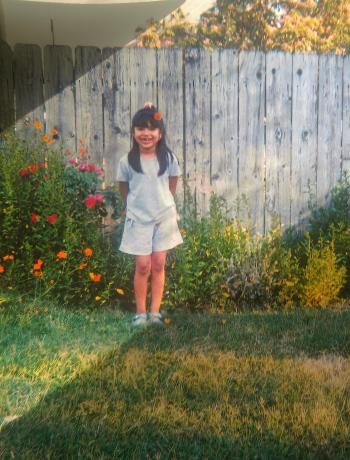
Tears tinged Madrigal’s voice as she recalled that memory. She didn’t know until later that her dad had returned to Mexico to bring her mother back to California and had run into trouble with people who extorted them along the way.
These moments were significant, she said, because they embedded a deep appreciation for prayer in her. It is in these moments that Madrigal would recite the Lord’s prayer, a prayer embedded in her in Sunday school.
What Madrigal did know was that God was with her and that she could pray. Her parents and her church had imprinted on her the practice of praying and she had memorized prayers, including the Lord’s prayer, that the priests said at church.
I can't remember one time where I didn't reach the Lord or where I didn’t pray in those hard moments.”
Lynette Madrigal
SALTer
“And so I think that as, as everything was going on in my parents’ life … my mom crossing the border, you know, me living with my sister's godparents or all of us living together and everything else, I like carried Jesus with me, you know,” she said. “I can't remember one time where I didn't reach the Lord or where I didn’t pray in those hard moments.”
Over her teenage years, Madrigal’s faith continued to grow along with her understanding of the migration experience. Her desire to speak up for immigrants and to become an advocate for their just treatment intensified.
In Fresno, California, she gained some volunteer experience as an immigration advocate. Her deep trust and connection to God led her to lead at spaces like Youth For Christ, working to connect young people to Jesus.
“Part of me deeply loves sharing the love of Jesus with people. I think it's something I just feel naturally inclined to do.”
At Casa del Migrante, where she has served since September, she has had opportunities to share with migrants from all over Central and South America and the Caribbean. That has expanded her understanding of migration beyond her own family’s experience as Mexican immigrants.
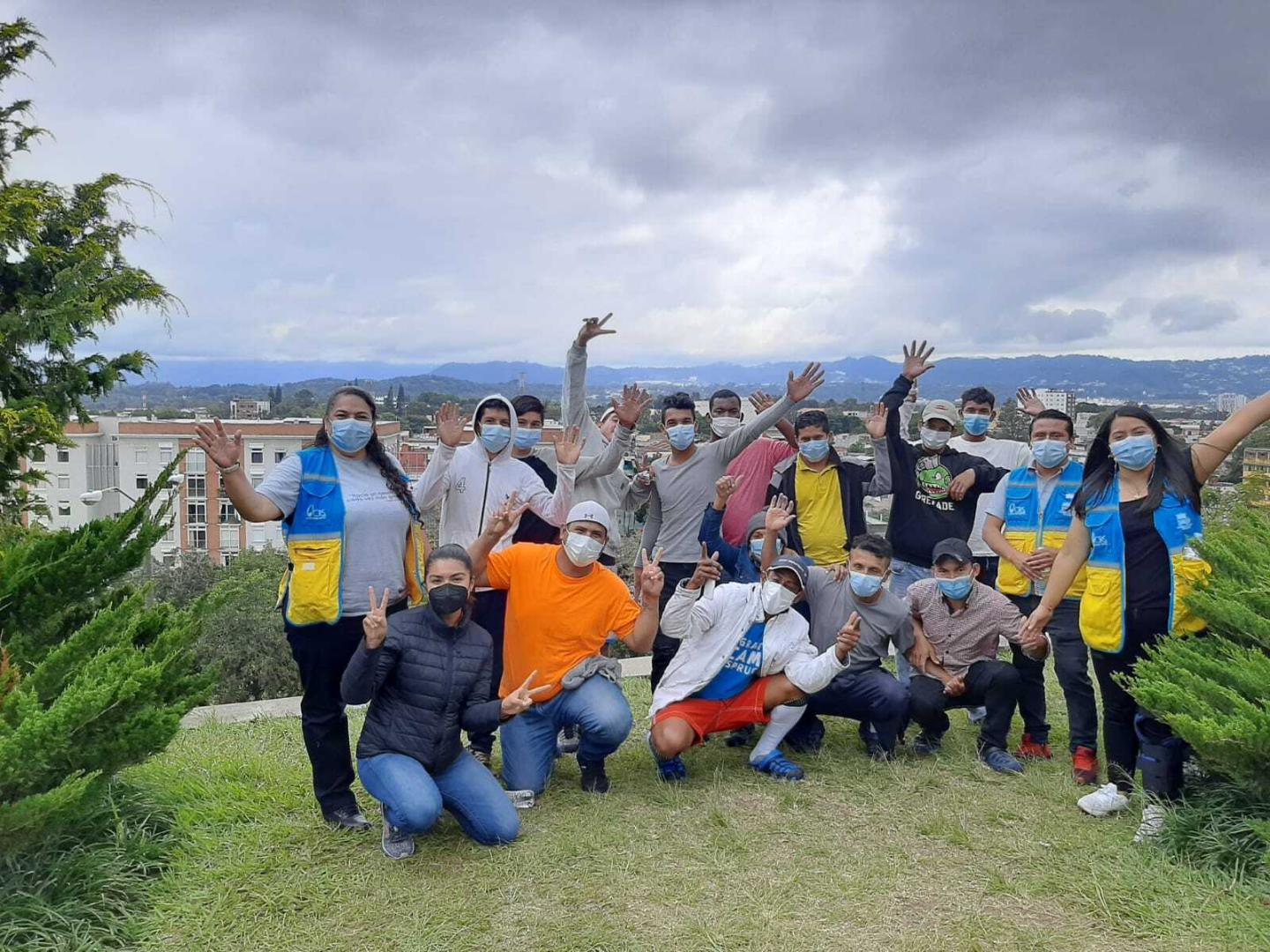
MCC photo/Lynette Madrigal
In casual conversations at the shelter, she met a man who was extorted and almost kidnapped by a cartel. She met women who were fleeing violence in their home countries. And she remembers the Venezuelan immigrant who became a primary volunteer at the shelter while he awaited permission to return to his home country.
“Can I just share, many of these people love Jesus. I think they really believe Jesus is with them,” she says. Sometimes, she says she’s jealous of their deep faith.
Yet they are all struggling with the hardships of migration and are encouraged by stories she shares from the Bible.
She recalls a special moment with a group of migrants at the shelter, where she had the opportunity to read from a New Testament story of the woman who touched Jesus’ cloak and was healed. She also shares Old Testament stories, reminding them of the hope that awaited the people of Judah and Israel after the hardships they experienced.
“Just reading the Bible with them, helps them think differently about maybe God's presence in their life, you know, God's abilities in their lives. I try not to sugarcoat things for them, because life is hard,” she says. … “I just remind them, like, Jesus is there in that hard space too.”
I just remind them, like, Jesus is there in that hard space too."
Lynette Madrigal
SALTer
Since January, most of her days are spent at the airport in Guatemala City to meet people who are being deported to Guatemala. In February and March of 2022, an average of 300 deportees come into Guatemala each day, she says.
Once the returnees finish the official processing and get their luggage, everyone scrambles to make arrangements to return home. Some need to travel hundreds of miles and up to 10 hours through the rough terrain of Guatemala to reach their villages.
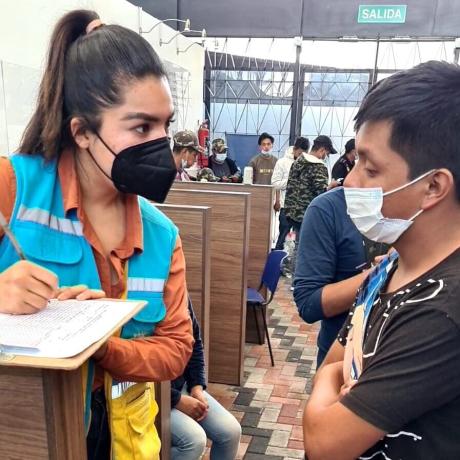
She and staff from other organizations are present in the midst of that anxious space, helpings migrants make phone calls and link migrants together to share transportation. She finds that those with money are often willing to share a ride with those who have no money.
“It’s like this altruism, right? Like they care for one another. It’s like they see … this person’s in the same circumstances as me. Let me help them. And so I think for me, it’s like man, like, Jesus is awesome. Like I don’t want to sound cheesy, but like I get so excited when I see that,” Madrigal said.
As these high moments come, she also empathizes with the pain of the returnees, especially as she observes the children.
“I remember seeing this dad was on the phone at the airport. He was crying with his little son, and the son was just like looking at his dad's face confused,” Madrigal recalls. “And I just see his little hands — He was about like 2 years old — his little hands trying to wipe the tears off of his dad's face.”
Seeing moments like these, combined with her own experiences as a child, leave Madrigal wanting to do something to make a safer space for migrants.

She’s called to a dual mission, Madrigal says: To share the love of Jesus with people and to advocate for more compassionate treatment of immigrants. She finds this call in the Bible, both Old Testament and New Testament – to love God with all your heart and loving your neighbor.
“I remember reading that early on in my evangelical faith, right and being like, ‘Yeah, love God; love people,’ like super hipstery. Gotta love everybody, right?
“And then it starts seeping deeper. … And you start reading the Old Testament a little bit. It's like, you gotta love these foreigners. Right? You gotta love these poor people. You got to take care of these widows. Right? What's another one? Orphans, right? Gotta take care of orphans. And so then you start reading more. Then you're just like, ‘Whoa, like these are probably some hard people to love. Some foreigners?
She treasures processing these Scriptures and the questions that they raise with people at Willow Avenue Mennonite Church in Fresno, California, who combine social justice with their love of Jesus, she said.
Though she’s not sure where the combination will take her career after her SALT term ends in July, she’s praying and deeply listening for God’s direction. She’s thinking it might have something to do with working with migrants in a ministry setting or maybe even law school.
Whatever it is, she’s confident, God will be with her.

